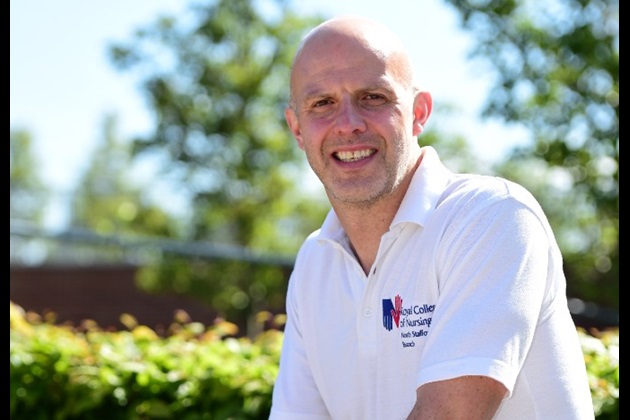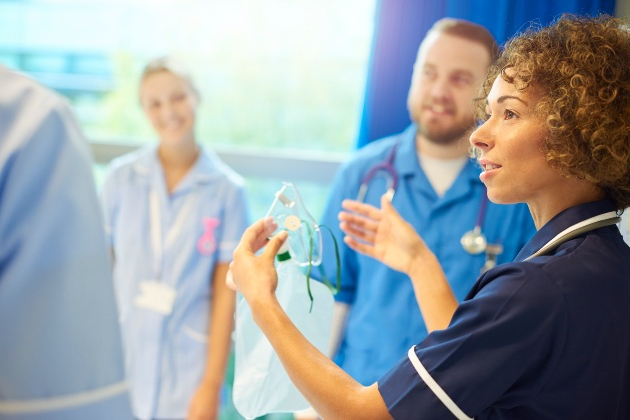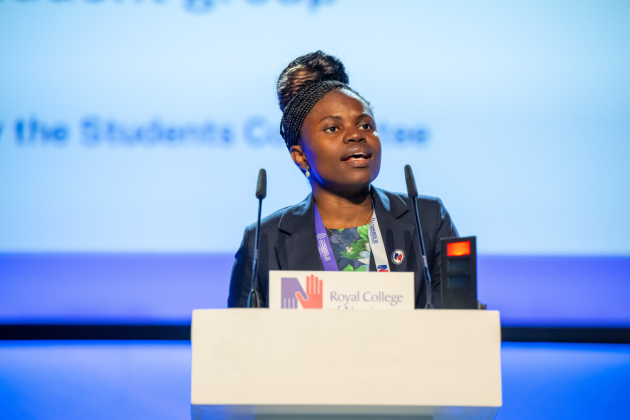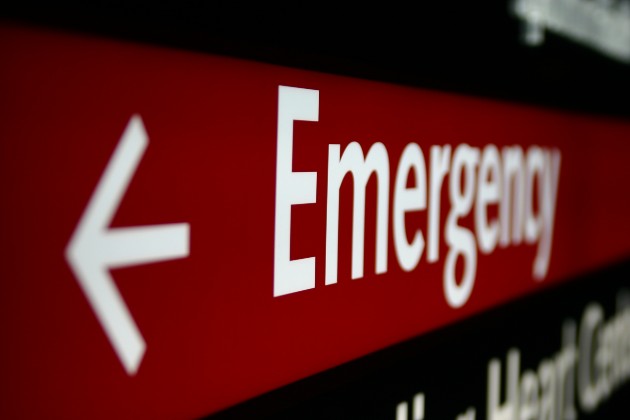Our workplace reps have been providing members with invaluable support during the COVID-19 pandemic. RCN steward Rob explains how his role has changed since the outbreak, and what he’s been doing to make members feel safe
Rob Irving works as a theatre practitioner at Royal Stoke University Hospital and has been an RCN steward for the past three years. He’s also the current staffside chair.
His role as a steward used to see him spend most of his time supporting members through disciplinary proceedings and sickness reviews, while his staffside role involved working with the trust and the other trade unions on policy reviews and negotiations.
Then COVID-19 happened.
“Almost overnight, everything changed,” says Rob. “My work is now entirely dominated by COVID-19, whether that’s helping members get answers to the many questions that have arisen or negotiating with the trust to get clarity on guidance.”
Almost overnight, everything changed
Rob says the changes brought by COVID-19 have happened in several distinct phases. “Initially, when the impact of the virus was becoming apparent and the government started to introduce its guidance, there was a lot of confusion among members.
“Predominantly, questions centred around when members should be self-isolating, sickness, and attendance requirements, before moving on to situations where members were in work and were questioning the guidelines around staff safety.
“This was particularly important to those staff with underlying health conditions, and whether they should be working in red areas (COVID-19 wards) or green areas (non-COVID-19 wards). There were also a lot of questions from office-based members, asking whether they could/would be redeployed into clinical areas.”
At the same time Rob was having to deal with managing his pre-existing caseload, which was essentially put on the backburner as the trust focused on the clinical challenges COVID-19 has presented.
“I’ve been doing a lot of work with the trust around delaying ongoing member cases, such as sickness reviews and disciplinary processes,” explains Rob. “Essentially, everything has been put on hold, which has meant looking at how that impacts on the members involved and ensuring they are kept updated with what is happening and what it means for them.”
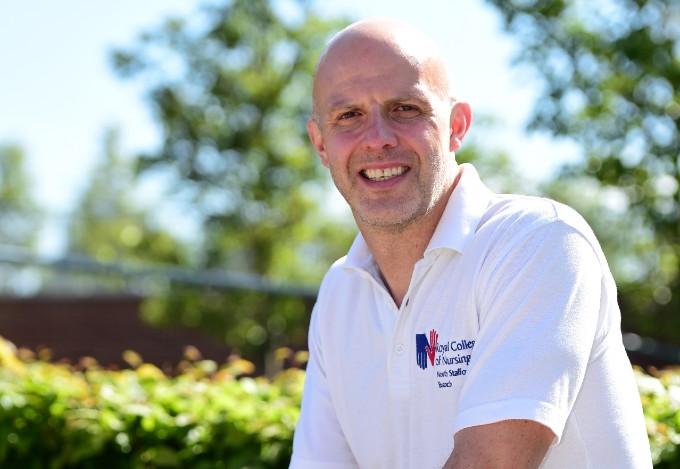
Leading negotiations
One of the major issues which has been taking up a lot of Rob’s time is personal protective equipment (PPE). Initially, there was confusion surrounding what members should be wearing, and what level of contact they should be having with patients while the trust was waiting for guidance from Public Health England (PHE). And then there was further confusion around the contradictions between the PHE advice and the guidance coming from the World Health Organization.
“This resulted in some lengthy negotiations between the trade unions, the chief nurse and the infection prevention team about what PPE should be used and where. And then, when all that was resolved, we were hit by a number of problems surrounding the supply of PPE,” says Rob.
“Thankfully, it wasn’t so much a case of not having enough – although there were times when the stock levels were becoming concerning – but more to do with the fact that we were receiving a wide variety of different makes of PPE.”
This has presented its own challenges, particularly around facemasks, as every time staff were being given a new brand of facemask, there was the confusion over whether they needed to conduct a fit test or a fit check.
“There was also the question of what to do with those staff who failed the fit tests,” says Rob. “What would happen to them, where would they work? This led to further negotiations with the trust, which were resolved by the common-sense solution of moving staff to the green, non-COVID-19 areas of the hospital.”
It's been vital to work in partnership with the trust
Working through challenges
“I’m very aware that I’ve used the word ‘confusion’ a lot in relation to what we were doing and how the trust was responding, but everything has been happening really fast, a lot of the time on a literally hour-by-hour basis," Rob continues.
“This whole situation was obviously new for both us and the trust, and it presented different challenges on a daily basis. While we are obviously working with our members' best interests front and centre, it has been vital to work through these challenges with the trust. This has been where the working relationship has been crucial.
“I’ve been fortunate that we’ve always had a good relationship, and so far we haven’t reached a ‘stand-off’ situation. There have been times when there have been tensions and we’ve had to push back quite hard to get our position across and understood, but we’ve always managed to resolve our differences and overcome the challenges we’ve been facing.”
We've had to push back quite hard to get our position across and understood
Rob is currently working with the trust to try and resolve an issue with shift patterns and hours which has reared its head as a result of COVID-19. It’s a tricky situation, as Rob has some sympathies with the position the trust finds itself in.
He explains: “Essentially, ICU and theatre staff were put onto new shift patterns in early March, when it looked like ICUs might be overwhelmed with ventilated patients. The shift patterns were changed to ensure there were sufficient medical teams in place, and that they were able to meet the infection prevention requirements.
“Thankfully, this worst-case scenario hasn’t materialised, but it has resulted in a situation where we have members who now haven’t worked their contracted hours through no fault of their own, so now theoretically ‘owe’ the trust hours. The RCN and the other unions are now in negotiation with the management to try and find a solution.
“Unfortunately, I don’t think it’s going to be possible to find a solution which pleases everyone. There’s no ‘one size fits all’ solution, and in all honesty the trust did the right thing by preparing for the worst-case scenario. It was impossible for them to predict exactly how this was all going to pan out, but that doesn’t mean our members should suffer because of something beyond their control.”
Our members have shown themselves to be exceptionally resilient
While things are clearly far from normal, Rob is seeing a shift from the trust towards trying to get back to more “day-to-day” activities, with tentative conversations taking place about how that might work.
“I think there will be a move towards restarting lower level sickness reviews and disciplinary matters soon,” says Rob. “We’ll be talking about how that will work, whether it’s via video conferencing or social distancing, with the potential to reinstate full hearings further down the line. But obviously it will all be dependent on adhering to the appropriate guidance.”
And how does Rob think members are coping at the moment?
“I think they’ve been amazing,” he says. “We find ourselves in an unprecedented situation, and our members have shown themselves to be exceptionally resilient. Their dedication, professionalism and their willingness to be reasonable in adapting to an emergency make me proud to be their representative.”
Want to become a rep?
The RCN has three types of workplace reps – stewards, safety reps and learning reps.
Find out how each role helps members in the workplace and how you could get involved.


